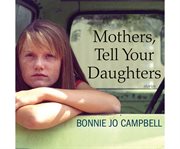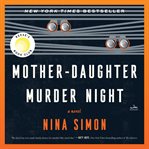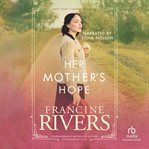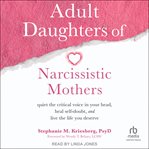Review by New York Times Review
THE LOST TIME ACCIDENTS, by John Wray. (Picador, $18.) In early 20th-century Vienna, a physicist makes a groundbreaking discovery that reverberates through his descendants' lives. The novel leaps across the century to his heirs - including an unremarkable scientist and a pulp science fiction author - and lands on Waldy Tolliver, his great-grandson, who realizes one morning that he has been "excused" from the course of normal time. A PERFECT LIFE, by Eileen Pollack. (Ecco/HarperCollins, $15.99.) Jane Weiss, a scientist at M.I.T. and this novel's central character, has devoted herself to investigating Valentine's disease, a neurogenerative disorder. Her research is motivated by personal tragedy - her mother died of the disease, and there's a 50 percent chance that Jane has it, too - but the story's heft comes from Jane's vocational mastery. MOTHERS, TELL YOUR DAUGHTERS: Stories, by Bonnie Jo Campbell. (Norton, $14.95.) The women here carve out refuges for themselves and one another in brutal circumstances; in the title story, a woman unable to speak after a stroke tries to communicate with one of her children. The tales drill down "to hidden depths of feeling and being, to reservoirs of strength and power that these women hardly know are there," our reviewer, Emily Eakin, wrote. UNITED STATES OF JIHAD: Who Are America's Homegrown Terrorists, and How Do We Stop Them?, by Peter Bergen. (Broadway, $17.) The author, CNN's national security analyst, offers a guide to domestic radicalism post-Sept. 11, looking at why some Americans become jihadists; how society has been shaped by the threat; and the government's (often contentious) response. Our reviewer, the former Homeland Security secretary Janet Napolitano, called this "the best one-volume treatment available on the current state of jihad in America." THE YEAR OF LEAR: Shakespeare in 1606, by James Shapiro. (Simon & Schuster, $18.) A turbulent year in England's political history turned out to be potent creative fodder for three of Shakespeare's greatest plays: "King Lear," "Macbeth" and "Antony and Cleopatra." Keenly aware of the fears and cultural upheavals of the time, Shakespeare translated the era's concerns into enduring, universal works. IN OTHER WORDS, by Jhumpa Lahiri. Translated by Ann Goldstein. (Vintage, $16.) Motivated by a longstanding love for Italian, Lahiri, who won a Pulitzer for her story collection "Interpreter of Maladies," chose to put aside writing in English altogether. These essays chronicle her self-imposed exile, from the physical aspects of her move to Rome, to the literary alienation and self-discovery that accompanies working in a new language. ?
Copyright (c) The New York Times Company [January 1, 2017]
Review by Booklist Review
*Starred Review* Campbell follows her first novel, Once upon a River (2011), with her third stellar short story collection, a gathering of penetrating tales about the hidden truths of women's lives. Sparks fly from the start with Sleepover, a breathtakingly concise, stabbing, darkly funny tale about sex and self. Male brute force and female struggles underlie the deeply disturbing Playhouse, in which a brother fails to protect the sister who adores him. In each subsequent, visceral, surprising, pitch-perfect tale, Campbell strides further into the swamp of sexual conflicts and trauma, from routine contempt to rape, telling tales not of good and evil, but rather of soul-wringing emotional complexity and epic grit. Mothers try to prevent their daughters from making the mistakes they made, while daughters who have no intention of emulating their mothers are nonetheless swept up by the timeless torrent of desire, angst, and loss. Campbell's narrators women who farm, drive a truck, work as cashier, phlebotomist, biology teacher, and upholsterer, and travel with a circus are mesmerizing, each voice distinctly rich in confusion, wisdom, and humor. From a bittersweet variation on the Lolita predicament to a cheating dead ex-fiancé possibly reincarnated as a dog to the title story, a tour de force performed by a tough old gal whose life has been shaped by grueling chores, a fearsome husband, six children, and sexual crimes, Campbell delivers 16 commanding, piquant, and reverberating stories about womanhood besieged and triumphant. HIGH-DEMAND BACKSTORY: Promotion for National Book Award finalist Campbell's droll and powerful new book will include an author tour, media coverage, and reading group outreach.--Seaman, Donna Copyright 2015 Booklist
From Booklist, Copyright (c) American Library Association. Used with permission.
Review by Publisher's Weekly Review
After 2011's novel Once upon a River, National Book Award-finalist Campbell returns to the realm of food stamps, liquored nights, and deadbeat men in an aptly titled short story collection populated by beleaguered mothers and their tetchy, trouble-courting offspring. In "To You, as a Woman," a gang-rape victim and single mother laments her later irresponsible choices and contemplates the fate of her two young children while waiting for STD lab results. The paranoid maternal figure in "Tell Yourself" drives away her new beau after wrongfully accusing him of showing an interest in her teenage daughter. In "My Dog Roscoe," a hormonal and pregnant new bride imagines her dead ex-fiancé inhabiting the soul of a stray dog in need of adoption. The title story unfolds as a sprint-down-memory-lane rant from a hospice-bound, cancer-ridden woman to her daughter. "Forgive me, even if I can't say I'm sorry," she says-an apology uttered in one way or another by many of the mothers in this collection. Campbell has made a career chronicling the triumphs and hardships of the perpetually marginalized, with an acute talent for airing the dirty laundry of tough-as-nails, ill-treated women. And though this new batch traverses similar territory instead of, perhaps, something new, most of the stories succeed so thoroughly that it's hard not to think: if it's not broke, don't fix it. (Oct.) © Copyright PWxyz, LLC. All rights reserved.
(c) Copyright PWxyz, LLC. All rights reserved
Review by Library Journal Review
These dark stories of women's lives in rural Michigan are funny, poignant, and depressing by turns. Each tale tells of common conflicts and how family members fail one another, though they try hard and some eventually recognize mistakes they have made. Some of the stories present a "lady and the tiger" ending, leaving readers to wonder at the outcome and hope the protagonists can find their way to a positive ending All of the women and girls are strong characters, while many of the men skew closer to caricatures. Narrator Christina Delaine gives life to the various personae. -VERDICT An enjoyable listen for those who enjoy gritty, hard-luck stories. ["Bittersweet stories of unbearable heartache, sadness, and sometimes love": LJ 8/15 starred review of the Norton hc.]-Cheryl Youse, Norman Park, GA © Copyright 2015. Library Journals LLC, a wholly owned subsidiary of Media Source, Inc. No redistribution permitted.
(c) Copyright Library Journals LLC, a wholly owned subsidiary of Media Source, Inc. No redistribution permitted.
Review by Kirkus Book Review
Campbell's latest (Once Upon a River, 2011, etc.): a powerful but uneven collection focused on the experiences of working-class Michigan women. She covered much the same ground in American Salvage (2009), a National Book Award finalist, but still has plenty of fresh insights, as evidenced in the collection's three standout entries. The title story is a searing first-person monologue by a woman dying of lung cancer, talking back in her head to the reproachful, college-educated daughter who blames her for sharing her life with a parade of violent men who brutalized her children as well. "When I had a voice," she muses in the wrenching climax, "I didn't know how much I wanted to say to you, to explain how I lived my life the way I could." "A Multitude of Sins," by contrast, is the scary but gratifying account of an abused wife who finally gets her own back with the mortally ill husband who can no longer hurt her. The most nuanced and complex tale gently profiles Sherry, who has spent years trying to create "Somewhere Warm" for her family, a refuge totally different from "the bitter place where Sherry grew up, where people humiliated one another, where the power of love did not hold sway." Instead, her smothering embraces drive away her husband, her lover, and her angry teenage daughter, though a tender ending offers tentative hope. Campbell's protagonists are tough but heartbreakingly vulnerable; an appalling number have been molested as children or raped as adults, and they rarely seek justice since nothing in their experiences suggests it's attainable for them. The very modesty of their dreams"Our own home, a comfortable, well-lit place nobody can take away from us, where each of us has our own room and closet," yearns the narrator of "To You, as a Woman"indicts the society from which they expect so little. A fine showcase for this talented writer's ability to mingle penetrating character studies with quietly scathing depictions of hard-pressed lives. Copyright Kirkus Reviews, used with permission.
Copyright (c) Kirkus Reviews, used with permission.





